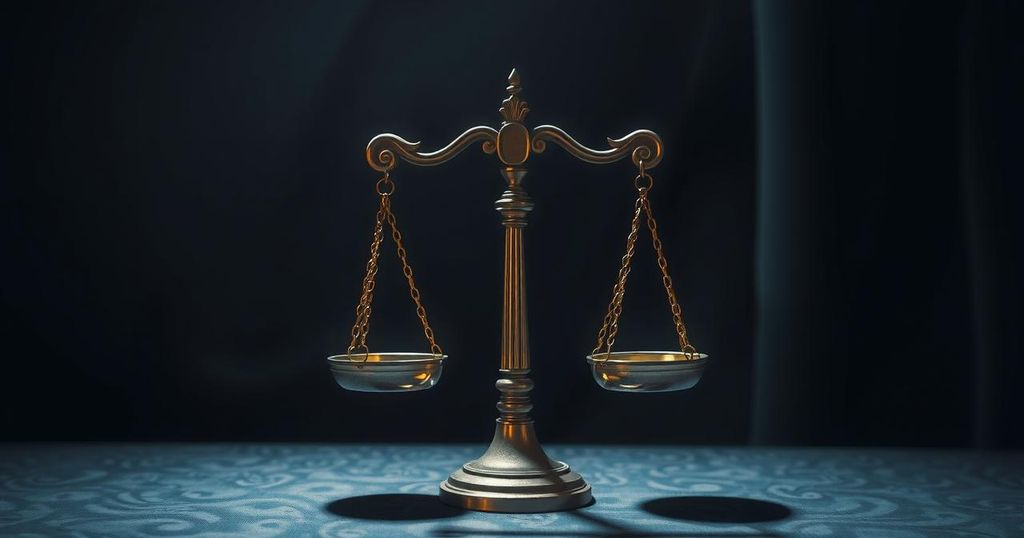Nigeria and the Erosion of Judicial Integrity in Election Disputes
The article discusses the ongoing concerns regarding judicial leaks and integrity in Nigeria, especially in election disputes, citing various historical instances and contemporary examples. It highlights the growing public distrust in the judicial system, exacerbated by connections between judges and politicians, and emphasizes the importance of reform through the legacy of advocates like Joseph Otteh.
The discourse surrounding judicial integrity in Nigeria continues to be marred by frequent allegations of leaked decisions, particularly in election disputes. A notable instance occurred on April 2, 2025, during the Edo State Governorship Election Petition Tribunal presided over by Judge Wilfred Kpochi. Before delivering the judgment, Judge Kpochi sought affirmation of a unanimous decision from his fellow judges, amid accusations that a leaked document suggested a split verdict against the Peoples Democratic Party (PDP) and its candidate, Asue Ighodalo.
Historical precedents reveal that such leaks are not anomalous but rather have a longstanding presence in Nigeria’s political landscape. For instance, in 1979, allegations of preferential treatment emerged when military leader General Olusegun Obasanjo appointed Atanda Fatayi Williams as Chief Justice just before adjudicating a pivotal electoral petition. Similarly, in 2008, Bola Ahmed Tinubu’s Action Congress party decried leaks surrounding the tribunal’s judgment related to the 2007 presidential election, exemplifying the pervasive doubt that surrounds judicial rulings in Nigeria.
In contemporary evaluations, the credibility of judges and the confidentiality of their deliberations have been increasingly called into question. The public perceives these breaches as symptomatic of a broader crisis in the judicial process. Statements made during the valedictory session of the 9th Senate by Adamu Bulkachuwa highlighted the concerning connections between politicians and judges, evoking criticism from legal professionals regarding the independence of the judiciary.
Nyesom Wike, the Minister of the Federal Capital Territory, further criticized members of Nigeria’s Body of Benchers, describing their lack of integrity in light of perceived connections with politically motivated actions. This criticism reflects the growing concern over an erosion of clinical independence within the judiciary, which, according to advocates like Joseph Otteh, is crucial for the restoration of public faith in justice.
Joseph Otteh, a prominent figure in the fight for judicial integrity in Nigeria, passed away recently, leaving behind a legacy of advocacy for justice reform. His 1995 publication, The Fading Lights of Justice, remains a poignant reflection of the deteriorating state of the Nigerian justice system. His commitment to maintaining the integrity of the judiciary serves as a reminder of the critical need for reforms to revive public trust in legal institutions. Otteh’s contributions were characterized by dedication, intellect, and empathy, qualities that are sorely needed in the current climate of suspicion surrounding Nigeria’s judiciary.
The issues surrounding the integrity of the judicial process in Nigeria are deeply entrenched, underscored by historical patterns of alleged leaks and political interference. The recent experiences highlighted signify a growing public distrust towards judicial decisions, exacerbated by the intimate connections between judges and politicians. Advocates for justice, such as the late Joseph Otteh, underscore the imperative for reform to restore credibility in the judicial system and rekindle public faith in its fairness and impartiality.
Original Source: www.thisdaylive.com




Post Comment